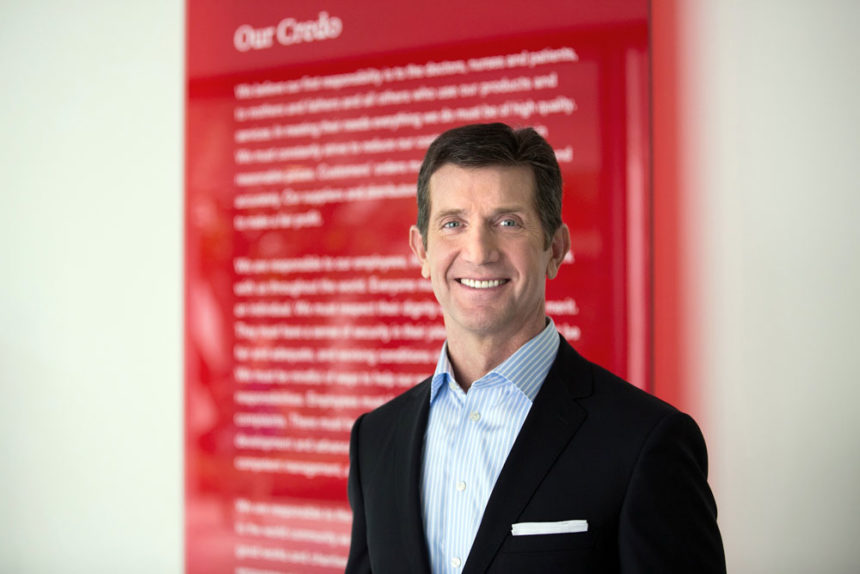Johnson & Johnson CEO Alex Gorsky downplayed the threat of biosimilar competition in the US for its top-selling drug Remicade, telling investors he expects the biosimilar market to operate differently than the generic one.
Remicade generated $1.6 billion in sales for Johnson & Johnson in the second quarter of 2015, down 7.5% compared to the $1.8 billion it reported in the same quarter in 2014. Hospira, which is being acquired by Pfizer, and Celltrion have filed applications to market copycat versions of Remicade in the US. Remicade biosimilars were introduced to certain markets in Europe in February. But Gorsky said the company plans to defend its patent in the US as well as the drug’s current market position.
“More than 2.2-million people have been treated with Remicade and about 70% of the current patients are receiving sustained and effective treatment so we believe their doctors are very unlikely to switch them off with that level of success,” Gorsky said during an earnings call.
Still, decreasing Remicade sales and declining prescriptions of hepatitis-C treatment Olysio were two factors dragging down worldwide pharmaceutical sales 2.9% to $2.5 billion for the quarter. J&J executives said sales growth stemming from new products like Type-2 diabetes therapy Invokana and cancer drug Imbruvica was offset by lower sales of Olysio in the US and Sovriad in Japan.
Olysio sales tumbled 93.1% to $50 million in the US in the second quarter of 2015, compared to the $725 million in sales generated by the drug in the second quarter of last year. The treatment was the first in a new class of hepatitis-C drugs with significantly higher cure rates than previous treatments, but physicians have instead mainly prescribed Gilead Sciences’ Harvoni and Sovaldi.
Johnson & Johnson’s overall worldwide sales fell 8.8% to $17.9 billion in the second quarter. Profits rose 4.4% to $4.5 billion.








